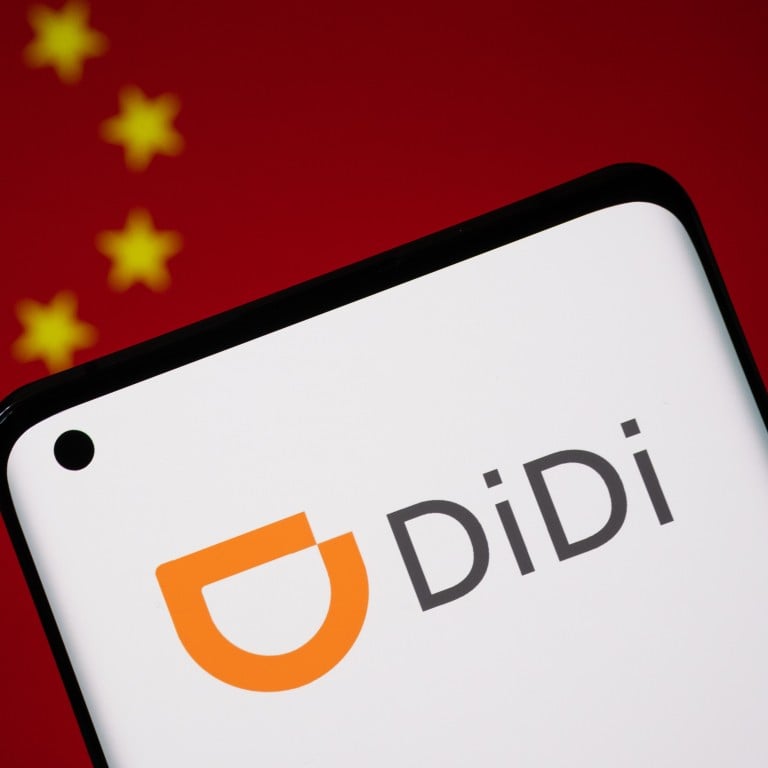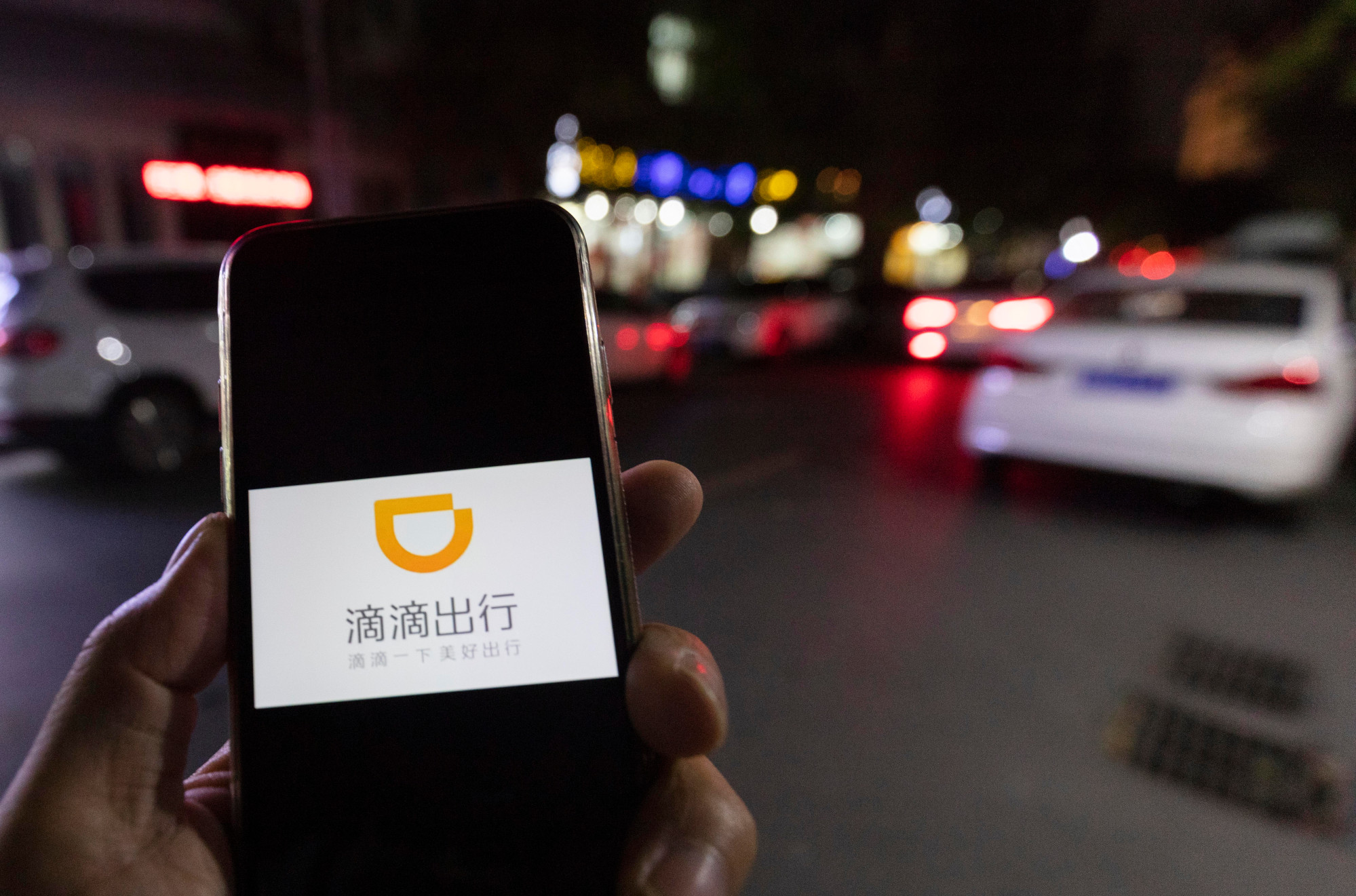
Timeline: how Didi forced its way from Beijing to New York - and ended up in Hong Kong
- In July, China’s internet regulator banned Didi’s app from the country’s app stores indefinitely, saying it ‘seriously violated the country’s laws and regulations’
- In September, Didi president Jean Liu told close associates that she expected the government to take control and appoint new management, according to Reuters
Chinese ride-hailing giant Didi Chuxing said on Friday that it will start the process of delisting from the New York Stock Exchange and move forward with plans for a Hong Kong initial public offering (IPO).
Beijing-based Didi was founded in 2012 by Alibaba alumnus Cheng Wei, who owned 7 per cent of the shares and controlled 16.2 per cent of its voting power ahead of the New York listing.
In recent years, the company has emerged as a tech giant that dominates China’s ride-hailing market, receiving a market share boost after it took over Uber’s China operations in 2016.
Following is a timeline of Didi’s troubles since listing just over five months ago.
Chinese ride-hailing giant Didi to delist from NYSE, plan Hong Kong IPO
June 30, 2021: Didi launches New York listing
On the eve of the 100th anniversary of the Chinese Communist Party, Didi raised US$4.4 billion from its New York IPO, valuing the company at about US$70 billion.
Didi’s investors included SoftBank, Tencent Holdings, Post owner Alibaba Group Holding, Toyota Motor and Uber. The company had raised US$19.2 billion in multiple rounds of private-market fundraising since 2012.
Since the listing, Didi has kept an unusually low profile.
July 2: Cybersecurity review ordered
CAC also ordered the company to stop registering new users on its main app.
In a statement issued the same day, Didi said it would “fully cooperate with the relevant government authority during the review”.
July 4: Didi’s primary app removed from app stores
The CAC banned Didi’s app from the country’s app stores indefinitely, saying it “seriously violated the country’s laws and regulations through the improper collection and usage of user information.
The regulator also ordered Didi to take “corrective measures” and to comply with regulations, a hint that its app could be restored in the future.

July 9: More Didi-related apps removed
The CAC orders more than two dozen additional apps tied to Didi to be banned from China’s app stores, alleging they illegally collect user data. The apps included platforms catering to enterprise clients and freight movers, as well as apps tailored for Didi drivers, such as those used to manage dashcam footage.
The CAC also prohibited websites and platforms from providing links to Didi-related services. The 25 apps were ordered to “thoroughly rectify the existing problems in strict accordance with the requirements of the law and according to national standards”.
July 16: On-site investigation begins
Other departments involved in the on-site inspection included the State Administration for Market Regulation (SAMR), the Ministry of Natural Resources, the Ministry of Transport, and the State Administration of Taxation.
July 29: Didi denies privatisation report
The Wall Street Journal reported that Didi was considering going private to placate authorities in China, and would compensate investors for losses incurred since the listing.
However, Didi denied the report in a post on its official Weibo account, saying that it was “actively cooperating with cybersecurity reviews”.
August 6: Didi denies market rumours of data transfer
Didi said on Weibo that market rumours that it transferred data rights to third parties, introduced new major shareholders, and was planning to delist, were false.
This was in response to Reuters reports saying that the company was in talks with state-owned information security firm Westone to handle its data management, and that it planned to bring in new shareholders or delist its shares.
August 11: Didi management reshuffle report
The investigations, conducted to ascertain who was responsible for Didi’s decision to “force” its way to a New York listing, contrary to the Chinese regulators’ verbal instructions, was a “deliberate act of deceit” and may result in its co-founder Jean Liu’s role being changed, said one of the sources.
In a statement issued the following day, Didi said, “Market speculation about management change is untrue and unsubstantiated.”
August 16: Didi announces internally it has set up security committee
September 4: Didi denies reports of Beijing-led investment
Didi denied various media reports that the Beijing municipal government was leading a proposal to invest in the company, putting it under state control.
This came after Bloomberg News reported on September 3 that Shouqi Group – part of the influential Beijing Tourism Group – and other firms based in the nation’s capital would acquire a stake in Didi in the form of a “golden share”, with a board seat and veto power, under a preliminary proposal, citing people familiar with the matter.
September 20: Didi denied reports of co-founder Jean Liu leaving the company
Didi denied a Reuters report that president Jean Liu was on her way out, and threatened legal action to fight the “malicious” spreading of rumours.
Liu told close associates that she expected the government to take control of the ride-hailing giant and appoint new management, according to Reuters.
In another denial, Didi said the report was not accurate.
Didi Chuxing’s cybersecurity review shows no sign of ending
December 3: Didi to delist in New York
Although the Chinese government has not announced the result of Didi’s cybersecurity review, the company said on its official Weibo account on Friday that it would “start the work of delisting from the NYSE and initiate preparation for listing in Hong Kong with immediate effect”.
Liu Dian, associate researcher at the China Institute at Fudan University, said Didi’s latest move will solve the company’s problem “from the root”.
“[The move] will greatly lower the regulatory uncertainties it faces and is positive for the future development of the company,” said Liu. “This is a warning for other data-related tech platforms that they should strike a balance between making profits and taking social responsibility while offering public services.”

